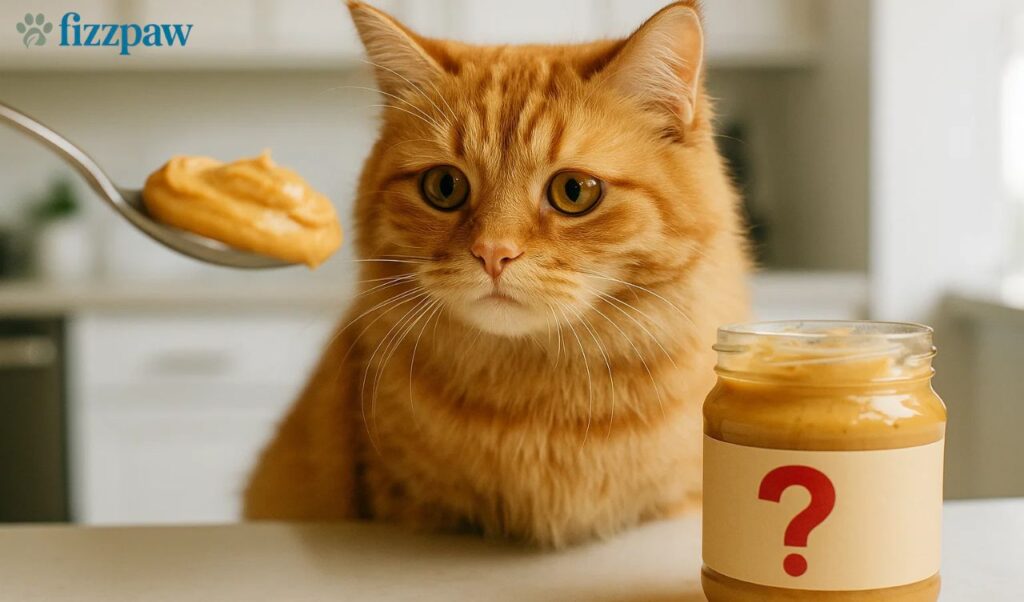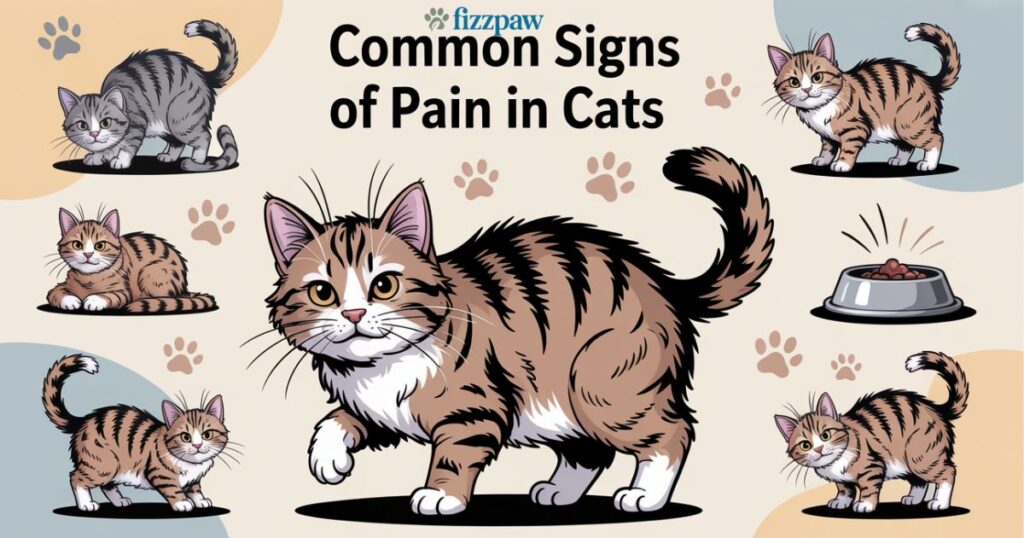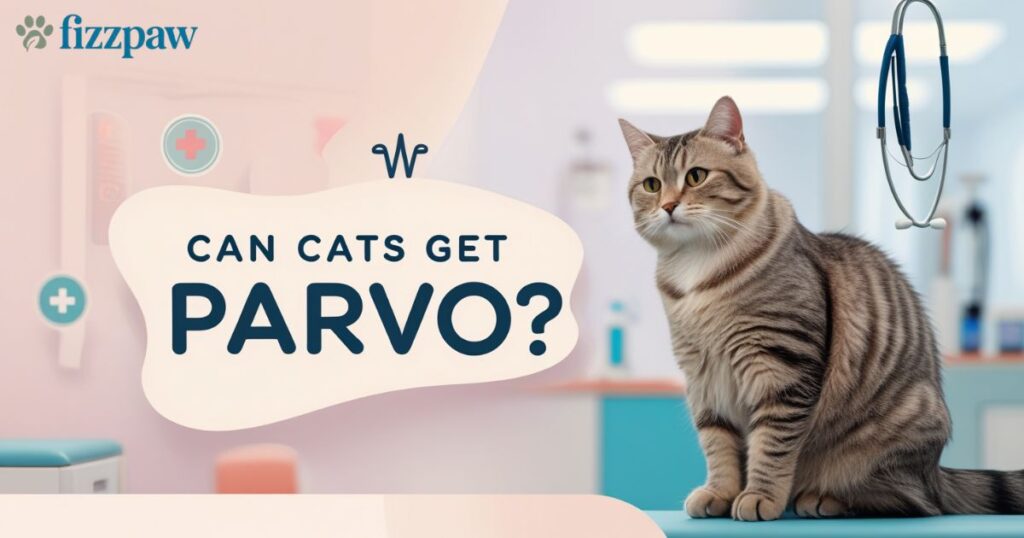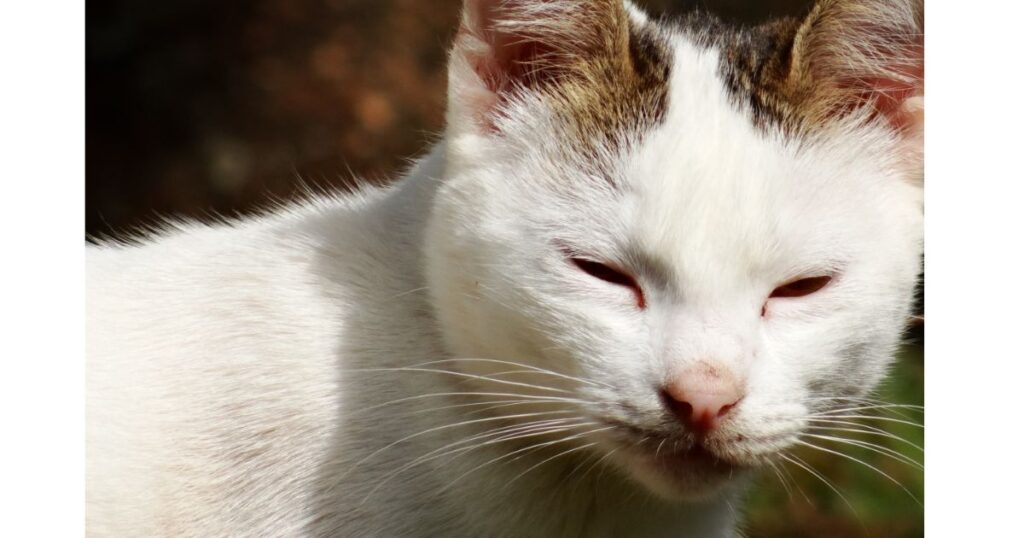Many cat owners ask themselves, Can cats eat peanut butter? This question often comes up when their cat shows interest in this thick and sticky human snack. At first glance, peanut butter may look safe, but for cats, it is not a good choice. The truth is, the answer is not a simple yes or no. While peanut butter might not look dangerous, it brings more possible problems than health benefits for your pet.
By the end of this article, you will have clear and science-based information to help you keep your cat safe. You will also understand the real facts behind the question: can cats have peanut butter?
Understanding Cats Nutritional Needs
Cats have very different food needs compared to humans. They are known as obligate carnivores, which means their bodies must rely on animal protein and fat to stay healthy and strong. Peanut butter may have protein, but it is not the type of protein cats actually require. Cats’ bodies are designed to get important nutrients such as taurine, arachidonic acid, and vitamin A — all of which come naturally from meat.
If you feed your cat plant-based foods, including peanut butter, it will not provide these important nutrients. Over time, this can cause health problems like weak eyesight, heart issues, and low energy. The American Veterinary Medical Association (AVMA) explains that a proper diet for cats should mostly come from animal-based protein, not plant snacks like peanut butter.
Here’s a quick look at the difference between essential cat nutrients and what peanut butter provides:
| Essential Nutrient (Cats Need) | Found in Meat | Found in Peanut Butter |
| Taurine | ✔ | ✗ |
| Vitamin A (preformed) | ✔ | ✗(only beta-carotene) |
| Arachidonic Acid (fatty acid) | ✔ | ✗ |
| Animal Protein (high quality) | ✔ | ✗ (plant protein only) |
| Healthy Animal Fat | ✔ | ✗(plant fat instead) |
This chart shows why asking can cats have peanut butter should be met with caution. Peanut butter simply doesn’t give them the nutrients they require for long-term health.
Is Peanut Butter Safe for Cats?
At first, peanut butter may look safe. It is smooth, full of protein, and many pet owners even use it to hide medicine for dogs. But when the question is can cats eat peanut butter, safety becomes a very important issue.
The biggest danger comes from xylitol, a sugar substitute that is sometimes added to “sugar-free” peanut butter. Even a very small amount of xylitol can cause a sudden and dangerous drop in blood sugar (hypoglycemia) in cats. This can make a cat weak, cause shaking or seizures, and in very serious cases, lead to liver failure. The FDA says that xylitol poisoning is always an emergency that needs quick veterinary care.
Even if peanut butter does not contain xylitol, it is still not good for cats. Most peanut butter brands have too much salt, sugar, and added oils. Cats cannot process these ingredients properly, and they can cause stomach upset, weight gain, or serious health problems over time, such as pancreatitis.
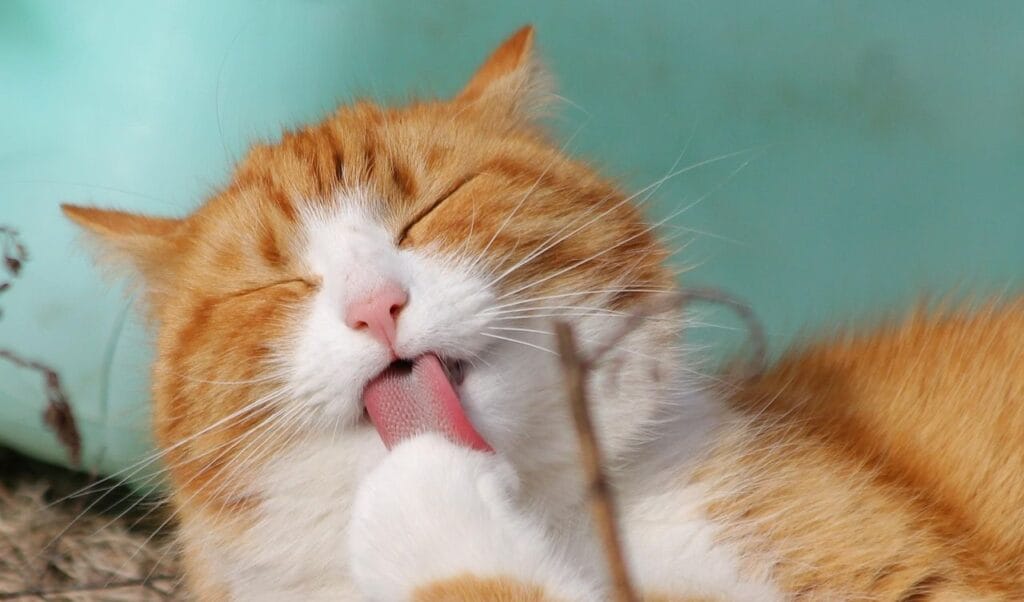
So, when thinking about peanut butter and cats, veterinarians generally agree: a small lick once in a while may not harm a healthy cat, but giving it regularly is not safe. Peanut butter does not give cats any real nutritional benefits, and the health risks are much greater than any possible reward.
Expert Insight: Dr. Kelly Diehl, a veterinarian with the Morris Animal Foundation, explains that while peanut butter isn’t toxic in small amounts, it’s an “empty-calorie food” for cats. Their health is always better supported by meat-based snacks.
Problematic Ingredients in Peanut Butter
Peanut butter looks simple, but most jars contain more than just ground peanuts. For cats, these extra ingredients can cause problems. Let’s break them down:
1. Xylitol – The Hidden Danger
- Found in sugar-free or “diet” peanut butter.
- Toxic to cats and dogs, even in small amounts.
- Can cause vomiting, tremors, seizures, liver damage, or even death.
- Always read labels carefully to avoid xylitol.
2. Salt (Sodium)
- Cats need very little salt in their diet.
- Too much can lead to dehydration, high blood pressure, and kidney stress.
- Peanut butter often contains far more sodium than a cat’s system can handle.
3. Sugar and Sweeteners
- Sugar isn’t toxic but is unnecessary and harmful to cats.
- Can cause obesity, diabetes, and dental issues.
- Sweetened spreads may also contain artificial flavors unsafe for felines.
4. Hydrogenated Oils & Fats
- Added to keep peanut butter smooth.
- Contribute to obesity, digestive upset, and even heart issues.
Bottom Line: Even if a brand is “natural,” it’s still not a healthy choice. Cats thrive on simple, animal-based foods, not processed spreads.
Can Cats Benefit from Peanut Butter?
Many cat parents wonder: “If dogs can have it sometimes, maybe cats can too?” The truth is, cats gain very little benefit from peanut butter. Here’s why:
1. Cats Are Obligate Carnivores
- Their bodies are designed to digest animal protein, not plant-based foods.
- Nutrients from peanut butter (like protein and fats) are not easily usable by cats.
2. Nutritional Value for Cats
| Nutrients in Peanut Butter | Value for Cats | Why It Doesn’t Help Much |
| Protein | Plant protein, hard to digest | Cats need animal-based protein |
| Healthy Fats | Present, but high in calories | Risk of obesity, pancreatitis |
| Vitamins (E, B3) | Tiny amounts | Cats already get from quality cat food |
| Fiber | Minimal benefit | May upset digestion in some cats |
3. Possible Small Uses
- Some vets suggest tiny amounts of peanut butter to hide medicine.
- This works better with dogs, but some cats may tolerate it.
- It should never replace treats or meals.
Key Takeaway: While peanut butter is tasty for humans, it has no real nutritional benefit for cats. At best, it’s unnecessary — at worst, it’s risky.
Risks and Side Effects of Feeding Cats Peanut Butter
Peanut butter may look harmless, but it’s risky for cats. Even small amounts can cause problems.
- Digestive upset: vomiting, diarrhea, gas.
- High in fat and calories: can lead to obesity, diabetes, or pancreatitis.
- Toxic additives: xylitol, sugar, and salt harm cats.
- Allergies: some cats react with itchy skin, swelling, or breathing trouble.
- Choking hazard: its sticky texture can block the throat.
Quick Risk Checklist:
| Risk Factor | Severity for Cats |
| Digestive upset | Moderate |
| Weight gain/obesity | High |
| Xylitol poisoning | Very high |
| Allergic reactions | Moderate to high |
| Choking hazard | Moderate |
Bottom line: Peanut butter is not a safe snack for cats.
My Cat Ate Peanut Butter: What Should I Do?
Cats are naturally very curious, and sometimes they may steal a quick lick of peanut butter before you even notice or have a chance to stop them. If this happens, there is no need to panic right away. What you should do next depends on two things: how much peanut butter your cat actually ate and what kind of peanut butter it was.
1. Check the Ingredients Immediately
- Look at the label for xylitol (sometimes called birch sugar).
- If xylitol is present, this is an emergency → take your cat to the vet at once.
2. Observe for Symptoms
If your cat had a very small amount of plain, unsalted peanut butter, most likely it will be fine. But watch for these warning signs:
- Vomiting or diarrhea
- Sudden weakness or tremors
- Loss of coordination
- Excessive drooling
- Refusal to eat or drink
3. Provide Fresh Water
Peanut butter is thick and sticky, which can make cats thirsty or uncomfortable. Always make sure clean water is available to help them flush out excess salt and sugar.
4. Call Your Veterinarian
- If symptoms appear, don’t wait.
- Vets may recommend blood tests, activated charcoal, or fluids depending on the situation.
- Keep the peanut butter jar with you so the vet can check the exact ingredients.
Emergency Action Table
| Situation | What To Do |
| Peanut butter with xylitol | Rush to vet immediately |
| Large amount eaten | Call vet & monitor closely |
| Small lick, no xylitol | Watch for symptoms at home |
| Cat choking | Try to clear your mouth & seek vet help |
Are Peanuts Safe for Cats?
Plain, unsalted peanuts are not poisonous for cats, but they also do not provide any real benefit. Cats are obligate carnivores, which means their bodies are made to survive on meat, not plants. Unlike humans, they do not need plant-based protein. Even though peanuts contain protein, this type of protein does not give cats the special amino acids and nutrients that are naturally found in meat.
Risks with peanuts:
- Choking hazard → hard texture and shells may block the throat.
- High fat → can upset the stomach, cause diarrhea, or lead to pancreatitis.
- Mold contamination → peanuts sometimes carry aflatoxins, harmful toxins that damage the liver.
Occasional peanut nibbling isn’t deadly, but peanuts should never be a regular part of a cat’s diet.
also Read : best cat breeds for you
Why Do Some Cats Love Peanut Butter?
Cats don’t taste sweetness the way humans do. So why do they seem fascinated by peanut butter?
- Smell factor → Roasted peanuts have a strong aroma that can trigger curiosity.
- Fatty texture → cats are instinctively drawn to foods rich in fat since prey animals are naturally fatty.
- Mimicking humans → some cats want what their owners are eating because of social bonding and curiosity.
Love doesn’t equal safety. Just because your cat enjoys the smell or texture doesn’t mean it’s healthy.
How Much Peanut Butter Is Too Much?
Even if it’s free from harmful additives, peanut butter should only be given in tiny amounts—less than ¼ teaspoon once in a while.
Too much peanut butter can cause:
- Weight gain
- Stomach upset
- Increased risk of diabetes
- Lethargy
Veterinarians agree: there’s no real nutritional need for cats to eat peanut butter. If you use it, it should be for medicine delivery only, and even then, in strict moderation.
Healthier Alternatives to Peanut Butter for Cats
If you want to treat your cat, there are better and safer options:
| Healthy Treat | Why It’s Good |
| Cooked chicken or turkey | High-quality protein |
| Scrambled eggs | Rich in amino acids |
| Cooked fish (no seasoning) | Omega-3 fatty acids |
| Steamed carrots or pumpkin | Gentle on digestion |
| Catnip or cat grass | Natural enrichment |
| Vet-approved cat treats | Balanced nutrition |
These options support feline health without the unnecessary risks of peanut butter.
Frequently Asked Questions About Cats and Peanut Butter
Q1: Can cats eat peanut butter cookies?
No. Cookies contain sugar, butter, and sometimes chocolate, all unsafe for cats.
Q2: Can cats eat peanut butter crackers?
No. Crackers have too much salt and processed ingredients harmful to feline health.
Q3: Can cats eat peanut butter and jelly sandwiches?
No. Jelly contains sugar and sometimes grapes, which are toxic to cats.
Q4: Can cats be allergic to peanut butter?
Yes. Symptoms include itching, vomiting, diarrhea, or hair loss. Call your vet if you notice these signs.
Q5: What happens if a cat eats peanut butter?
A small lick of plain, natural peanut butter usually won’t harm a healthy cat. But peanut butter with xylitol or in large amounts can be dangerous and requires immediate veterinary care.
Final Takeaway
The answer to the question, “Can cats have peanut butter?” is mostly no. A very small lick of plain peanut butter may not hurt every cat, but the dangers are much greater than any possible benefit. Cats stay healthy and strong when they eat animal protein, not plant-based snacks. For this reason, it is best to keep peanut butter out of your cat’s diet and instead offer safer and healthier alternatives that truly support their needs.

